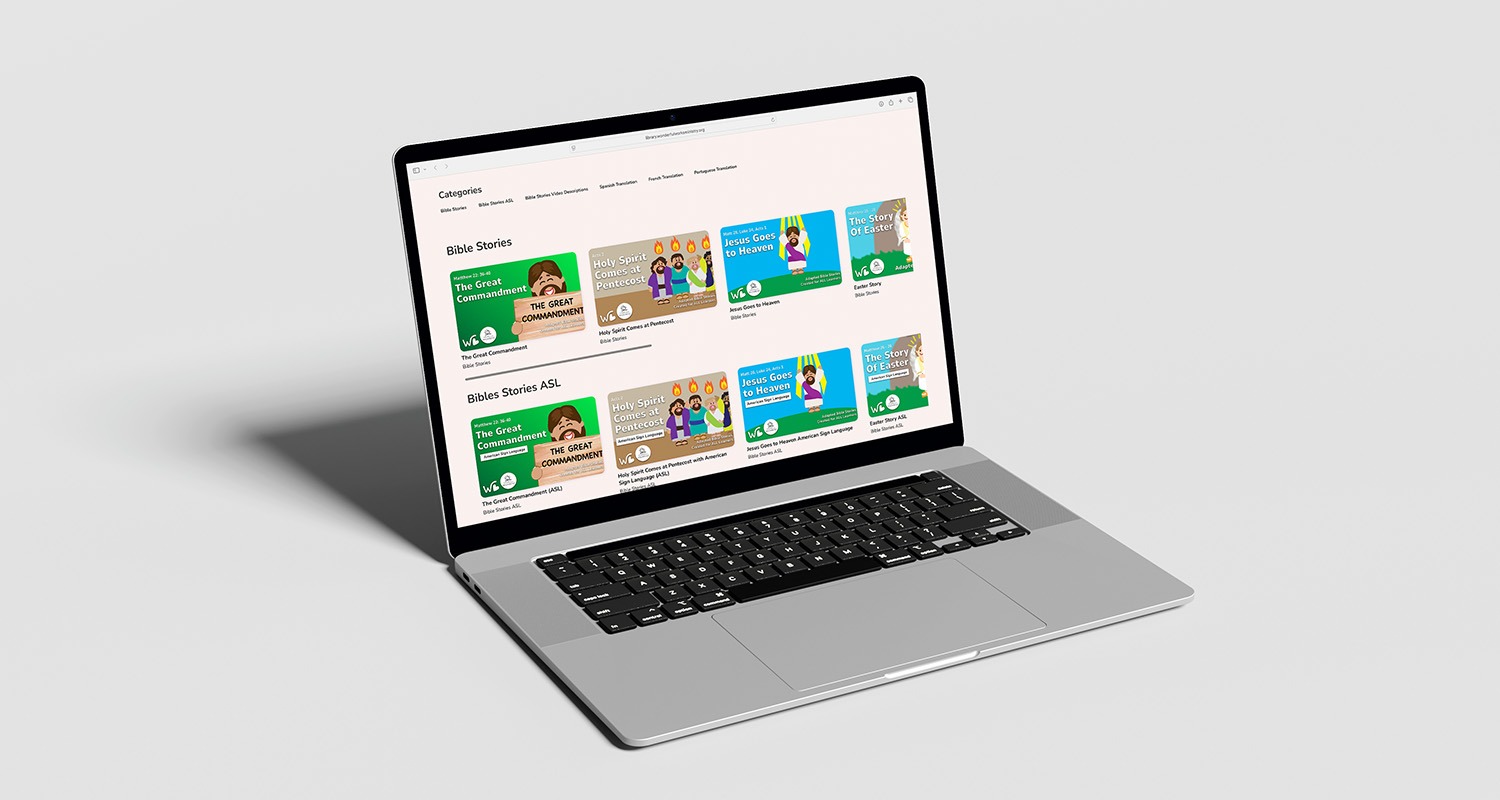Nazarene Disability Ministry, a ministry of Nazarene Discipleship International (NDI) in the USA/Canada Region, has recently released Adapted Bible Stories in Spanish, Portuguese, and French.
“In USA/Canada alone, we have many different languages,” said Ryan Nelson, Nazarene Disability Ministry coordinator. “We need to be speaking into churches that have those as primary languages or who have secondary congregations that use those as their primary language.”
Created in partnership with Wonderful Works Ministry, the Adapted Discipleship Library helps bring the gospel to children with intellectual and developmental disabilities and their families.
“We want to do our best to reach not just our English-speaking families and churches, but have as wide a reach as possible,” Nelson said. “Disabilities are not just an American thing. Disabilities are a global thing, and we want to have that impact to the best of our ability as we move forward.”
The Adapted Bible Stories are thoughtfully designed to teach with clarity and accuracy and can be adapted to meet the needs of children with a wide range of disabilities. These are free resources, among others, offered by Nazarene Disability Ministry. They can be accessed through the Adapted Discipleship Library.
Barb Stanley, founder and president of Wonderful Works Ministry, says the series utilizes a variety of research-based techniques.
“You have repetition, you have animation, you have interactive and multi-sensory teaching…all of which reinforce learning for all students, but especially students who have intellectual and developmental disabilities,” Stanley said.
What differs is how the story is explained, or “brought to the child’s level.” One example Stanley used dates back to her time as the disability ministry leader at The Refinery Church of the Nazarene in Columbus, Ohio.
“We noticed that the Bible videos that were being shown in our children’s ministry were not helping our students with intellectual and developmental disabilities because many of them contained a lot of metaphors,” Stanley said. “Many students with autism have a hard time understanding metaphors, so it was confusing.
“We’re trying to tell them the Bible in a way that meets the child’s needs,” Stanley added, “But you can’t leave out important parts. So, we try to tell the whole story in a way that is safe, but really gets the gospel to them.”
For Stanley, it’s also personal. Her brother has autism, and because their church growing up made her brother feel comfortable and welcomed, her family continued to attend.
“What that told me growing up was that church was a loving, safe place, because Jesus is a loving, caring Savior,” Stanley said. “If the church had not done that — because my brother was not easy — if the church had said it’s too difficult for your family to go, I wouldn’t be here today.”
According to both Stanley and Nelson, these resources and the intent to grow this ministry are just a response to the Great Commission.
“We are called to reach all people,” Nelson said. “It doesn’t give a caveat there. We’re just called to reach all people, and Jesus is for all people…I think if we can begin to capture what can happen in our churches if we become more accessible to families with disabilities, I think we’ll be better for it.”
